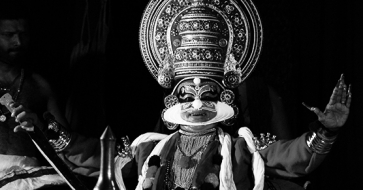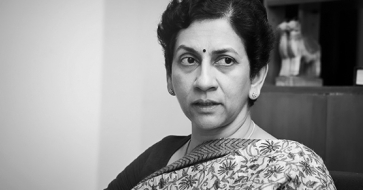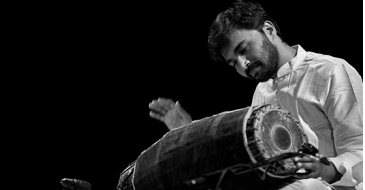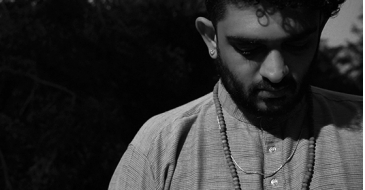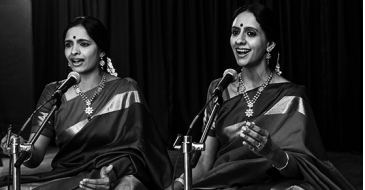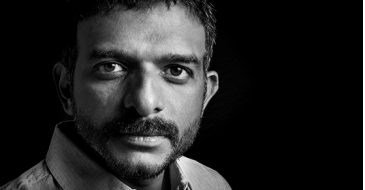Where does your identity lie?
In the beginning, I used to look at it in shades of grey. In actuality, it was very black and white. In India, I was an American and in America, I was Indian. Over in America, people look at ethnicity, colour of skin, culture and see me as Indian. Here in India, though, my accent and where I was raised set me apart, and I was seen as American. It was relatively simple.
Today, however, I’m so rooted in Chennai and in my home here. Yet, there’s still so much of me that’s American. For example, the way I speak is still very Americanized. This comes out even more when I travel back home, but it’s still relatively strong here.
This isn’t to mention that my day-to-day routine and my overall perspective of things is still very American, simply because I spent so many years of my life there. I think the difference is that I’ve realized that the way I define myself doesn’t completely matter. In fact, it hardly matters for anyone anymore. Everyone, especially in the arts field, travels so much that there are a host of Chennai-based musicians that live at least half the year in America, if not more. Whereas I still spend most of my time in Chennai.
It’s the kind of situation where it doesn’t matter anymore. Boundaries of identity have become extremely blurred so as a person, you just are who you are. The travels, the profession, they are all contributing factors, simply because the way we define culture has changed.
As far as my passion and my profession go, they were the reasons that I initially moved to India and eventually became the reasons why I stayed here. Now, I’ve rooted myself here in so many ways — socially, personally, and artistically. My identity simply takes on characteristics of all these things. Am I a Chennaiite? Yes. But am I also a Californian? Yes. It’s all blended together into this mélange of cultures, and everyone, including myself, seems really comfortable with that.
Was there a conscious process of getting to the point where you didn’t have to define your identity, or is it just a product of the way society has evolved?
I wouldn’t call it a conscious process — I’ve never been conscious of being American or Indian. I’ve never made a contrived effort to assimilate or fall into a certain identity. But many NRI parents have asked me regarding this, and I have seen it in others who move from the US to India and think they have to act or talk a certain way. I don’t make a conscious effort to be a certain way, and I don’t dismiss my American background either.
I never saw the point in trying to do that, to paint on a certain identity. Of course, there were drawbacks to this; I did face a lot of hurdles in the beginning because of how I came across. For example, while speaking to other musicians and organizers, there was a perception that this boy is extremely American. There was skepticism of whether I could deliver and even if I could, I wouldn’t be taken seriously, simply because they thought that any second, I might return to America and Carnatic music was just another achievement checked off on my resume.
In identifying myself, I’ve always stuck to what’s come naturally, whether that’s the language I speak in or what I choose to do wherever I am. Honestly, that probably comes from being more comfortable here nowadays — I have a set routine and now that I’ve planted myself here, my personality and my identity are just byproducts of the evolution of spending over ten years in the city. It’s also because the culture of Chennai has changed while the US has been changing: this makes it easier for all of us to travel as often as we do and fit in comfortably to our surroundings.
I think a little bit of struggle is good in any art form — it’s not just in music. Every artiste goes through that period of struggle — because, simply put, the world is not designed to be ‘easy’ for artistes
How much of this identity is tied to the rather traditional artistic profession you chose? Did the profession affect public perception?
The cultural nature of my profession wasn’t necessarily negative, but it did make my journey of identity rather unusual. In some ways, it took longer for me to be taken seriously and to fit in. But this was more a result of my story being so unusual — at the time that I chose to pursue Carnatic music professionally, no one had done it before. Well, no one with my background; an Indian, born and raised in the US and making the choice to live in India. Simply getting people to understand and accept that I was here to stay took four to five years; the sincerity of it was questioned a lot initially.
I don’t look at that as a product of the profession itself, though. It’s more so because the field of Carnatic music, within India and Chennai itself, encompasses such a small community — it doesn’t have ‘mass’ appeal or a ‘mass’ audience. Regardless of how I made the transition, the fact that I “left” the opportunities of the Western world to take this path influenced the perception that people had of me. Nowadays, though, the stigma around a move like this is gone, simply because it has become a more common one.
Do you feel like the artistic connection was more of a benefit than a drawback, despite some of the hurdles it posed?
Yes, in some ways — it gave me a purpose here, it gave me a role to play in society. Of course, people perceived my life decision in different ways, but when I started making progress, I felt more accepted into the community and the field. That purpose gave me a reason to be here and kept me busy. The whole idea and motivation to come to Chennai, and particularly Mylapore, was to be able to focus and fully immerse myself in the culture and musical environment, to practice, and go to concerts in the evening knowing there was something to learn every day.
For years, I’d have class almost every day, practice every day (way more than I would back in the US) and go to concerts everyday – that was the routine. There weren’t as many distractions and that’s essentially what I was here for — those first four to five years were the ones that really made a difference. Those were crucial, even to the point where I was going to concerts and people started to recognize me, first as an audience member and then as a music student sitting behind my guru on stage — people would put those two together, which is also another way to form an identity in that community. I knew which direction I was going and wanted to go in, so it definitely gave me a strong purpose that tied everything together.
And yet, having clarity with and accepting your own decision, especially in the face of judgment and societal perception, must have been difficult...
It wasn’t easy, that’s for sure. Unfortunately, in the field of arts, there’s not a straight trajectory to success or stability — you don’t study, get a degree, and aim for a job. There aren’t standardized markers to gauge one’s position in this field — your goals keep changing and evolving. Without a formal structure, you, as an artist, rarely know where you stand.
I kept setting expectations in increments, giving myself a timeline. And while I have an extremely supportive family and guru and I could see things getting better, I at times have been frustrated with the system, the way it operated, and the pace of progress.
In some ways, not having a precedent or an example to look up to in terms of my journey made the transition even harder, simply because this was an all-or-nothing decision. I had no fall back and after a few years, I started to wonder if this was meant to be. Interestingly enough, that’s when my parents really pushed me to stay. They told me things would be fine, and that they felt things changing — that next year is where things really turned around for me. I noticed it was when people finally believed that I had made the move — I was an Indian artiste, not an NRI artiste just visiting Chennai for extended periods of time.

Was the transition also difficult because the American upbringing is so goal-oriented, especially in a career space?
Completely. People would ask me how I could measure my progress since I shifted base but honestly, as I said, there’s no standardized way to quantify progress in any art form. There’s no single benchmark where everyone gets graded against each other.
Of course, there are attempts at quantification now, a given slot during Season at the Academy, for example?
True. But as an artiste, you can’t view your progress like that because there is no equalizing factor that comes into play. And even within that “senior Academy slot” there are 45 artistes. Some are Sangitha Kalanidhis, while some are singing in that time slot for the first time, and some maybe for the last time.
A different example; it’s a big deal to be in the top 32 of FIFA World Cup, but that doesn’t mean that Panama is the same as France. And if you take it for granted, you may get eliminated like Germany!
So, progress in the arts is really about the journey rather than the destination?
Definitely. And it’s a process you savour. Especially when you do it on your own terms.
People may get you in the door and make you prove yourself. But if you climb a very steep mountain yourself, you feel way better about it than if someone carried you all the way up. I was fortunate to have a guru who wanted me to go through those ups and downs, to learn to deal with the complications and issues myself. Of course, when I faced those issues, I’d take them to him and he guided me. Yet, he never made it easy by requesting sabha secretaries to feature me or pull any strings for me to get awards or concert tours. I’m so grateful for whatever success I’ve had so far, and appreciate the people and path that got me here.
Were the lows part of building career longevity, then, and adapting the identity of a full-time Chennai-based artiste?
Well, they definitely tested me. At a point where I was uncertain about my future, I had to ride those lows and then, suddenly, things really did change. So in some ways, they contributed to the fact that I’m here for the long haul. I’ve seen the struggle, so to speak, which has helped me value what I have today.
Unfortunately, in the field of arts, there’s not a straight trajectory to success or stability — you don’t study, get a degree, and aim for a job. There aren’t standardized markers to gauge one’s position in this field — your goals keep changing and evolving. Without a formal structure, you, as an artiste, rarely know where you stand
Having to verbally defend your decision, to almost convince others of a newfound identity in a very blunt way — does that make the process harder?
Not harder, necessarily, but I think you go through phases. I went through phases where at points, I felt like I was convincing everybody else of my decision. But sometimes, you question your own decision and that gets to you. It’s a very up and down process, very fluid.
Well even today, the concept of ‘home’ has become quite fluid. Let alone your own personal identity...
Honestly, I don’t think there really needs to be a fixed concept of home or where you’re stationed. If you’re committed to taking up Carnatic music as your profession, then in the initial stages, it helps to be here to really immerse yourself in this environment and in the Carnatic field. The musicians who do spend most of their time travelling abroad, have a very strong foundation rooted in Chennai and return frequently.
Do you think that still holds true today? Simply because there are so many opportunities in the US and so many artistes as well, it’s its own infrastructure, really.
Well, there are two parts to this, really.
First, if you’re the artiste who has moved to India and wants to make it in Chennai, you can’t be sitting in the US for 4 to 6 months in a year, because it simply won’t work - at least, I don’t think so. Simply because it is so unpredictable — you have to be available and up for anything, from suddenly scheduled concerts to requests from sabhas in different cities. That can contribute to longevity — your willingness to do everything physically possible, to surrender to your passion. At least early on in your career.
Of course, there are those who are happy to split their time between music and other interests even early on. But I don’t think one should regret missed opportunities by not fully committing to this scene mentally and physically — if at the end of your journey, you choose to do something else, that’s fine too. You’ve learnt from the experience and moved on, but you shouldn’t regret it. That’s the way I look at anything.
Second, yes, there are opportunities and infrastructure in the US, but as an artiste, taking up Carnatic music full time in the US is like choosing to be a big fish in a smaller pond. Here in Chennai, you’re judged against all of your peers and the whole Carnatic world. It forces you to address your full potential.
My decision might have been clearer to me twelve years ago because opportunities in the US didn’t exist the way they do now. I had performed in a handful of local venues and was only exposed to music when artistes would visit or local events would take place. The Carnatic music scene in the US is extremely different today.

Of course, part of your identity is your music, your choices. But some of it lies in the society around you — how you interact with your contemporaries, how you blend into the community. Coming from a mixed upbringing, did that put your integration into society in a bit of a flux?
As any adjustment does, this took time. People took time to realize I was serious and genuine about this new path I was on, and I took time to understand how serious I needed to be about it.
There have been contemporaries, though, who’ve been extremely supportive and still are today. And when I first moved, I surrounded myself with people who had nothing to do with the arts as well. It was a way to lead a balanced life, to take a step away from the kutcheris, the classes, the practicing, and the listening and to also maintain the other side of me.
But because of the profession you chose, you must have needed a certain amount of tunnel vision to work towards a life as a full-time artiste...
It’s always been important to have that focus, especially in a creative field. Surprisingly, that was simpler to have when I first moved — I knew less people, there were fewer distractions, and I knew that I had relocated to focus on music. It was almost in-built.
But you also need balance to help you thrive. I think that’s also normalized over the years, and I have never had to sit and analyze where I fit in best or what I identify as. I have struck that balance between devoting energy to practice and performance, as well as spending time with family and friends.
And those grey shades, as you mentioned earlier, have increased today — with so many people experimenting with fusion for instance, or trying new things...
For sure! The music scene in India is going through a huge experimental phase today. There’s nothing wrong with venturing out a bit, but it’s better to be clear on what you want to achieve because so much has already been done. The question, then, is what are you bringing to the table that’s unique and fresh and still challenging you artistically? And entertaining listeners as well. It’s tough because there’s a lot of branching out happening now and I wouldn’t want to just become one of so many initiatives taking place.
Well, also, the definition of a ‘classical’ musician has changed today...
Very true. There are so few people who can say that they’ve never done anything else other than pure classical music. It’s a personal choice.
For instance, I can say my guru is a traditionalist. But he’s made clear that that is his choice, a product of the way the field was when he entered and was up and coming. As an artiste, I’m free to choose how to position myself and make my own choices. So I have dabbled in fusion, but for some reason, I always came back to this art form in its traditional format.
There isn’t really a textbook right or wrong method, then?
There’s no right or wrong way to achieve success in Carnatic music. Everybody wants to know ‘the formula’ — but there’s definitely no formula, although I wish there was!
I wouldn’t even say there’s a good or bad. You have to be true to yourself — there are artistes even today who say “This is the music I believe in. I don’t care if audiences come or not.” That’s fine — you believe in yourself.
Yet, you also have to balance your genuine approach, with your expectations of an audience. It’s a balance - some parts of a concert satisfy the artiste in you, while other parts work to satisfy the audience and its expectations. I think that’s important.
But the choices you make, is there an awareness of public perception? Do you choose to be a classical artiste solely for yourself, or also because of how people will view you and your artistic identity?
For me, the choice has been for myself. Whatever I do, I want it to succeed.
In terms of perception, well, you can’t please everybody — that’s the first thing you have to accept. You have to do what you believe in and let everything else fall into place. I’ve just learnt that whatever I do, I want it to challenge me musically and I want to be successful with it for it to have longevity.
There’s, of course, another aspect of your identity today. How much of your identity as an artiste lies in ‘Sandeep Narayan, the individual’ versus ‘Sandeep Narayan, the Sanjay Subrahmanyan student'?
Somebody actually asked him several years ago, “why does Sandeep sing so much like you?” His answer was simple — I had been listening to him for most of my life.
I take it as a compliment. But after many years, people have begun to say that I’ve developed my own style.
One of the many positives of having a guru like that is that I was on stage with him for so many concerts. I’ve travelled with him and watched his career grow to the heights it’s reached today. Of course, there have been times when it’s very difficult to come out of his shadow and not just be Sanjay Subrahmanyan’s student — I’m also his student and always will be, but that’s not all that I am.
As a guru, he understands those pros and cons. He looks at it rationally. He doesn’t just think about what he’s done as a guru and what he’s given me, he sees that it’s a double-edged sword. From my point of view, I’m just getting started.

After so many years of calling Chennai home, is it even more important to grasp at certain American parts of yourself while living here?
Well, I don’t necessarily look at my tours and travels as necessities where I need to go back to the US and re-identify with the culture and a version of myself that used to exist so strongly. I don’t look at it as re-visiting my roots, the same way that I don’t feel the need to be overtly Indianized in my mannerisms while here in Chennai. I don’t look at it either way.
For me, going back is simply about singing concerts wherever I’m invited, and also getting to spend time and re-connect with friends and family. I don’t go back to the US ‘to be American.’
Do you feel like your evolution in terms of identity has been mirrored artistically? Was there, musically, a paradigm shift that tracked that change in any way or do you feel like your creative growth would have happened regardless?
I’m not sure if as a person, I would have turned out differently if I had chosen differently.
But I do know that artistically, the growth that I’ve seen definitely happened because I chose to live here in Chennai. I don’t think that I would’ve challenged myself as much, if I had not been exposed to so much music on a daily basis and seen the level and standard here of people in my age group and generation. The practice sessions with friends and exchanging of ideas forced me to think differently, hone my skills, and become better overall.
In a creative field like music, you need balance to help you thrive. I think that my focus has normalized over the years, as a result of which I never had to sit and analyze where I fit in best or what I identify as
Today, if you were to do it all over, would you do it the exact same way?
If I were to do it all over, I would still move to India. Some might say I should have been a little more aggressive in the earlier years to convince people of my seriousness and my passion, but I’m sure I wouldn’t because I’ve never wanted to manipulate people’s perceptions (laughs); I’ve always believed that things happen for a reason. I don’t know if I would do anything differently.
How important is the struggle then, in shaping your identity? Do you think it’s a requirement to success and achievement?
I think a little bit of struggle is good in any art form — it’s not just in music. Every artiste goes through that period because, simply put, the world is not designed to be ‘easy’ for artistes. The system and society we live in doesn’t reward or encourage classical art and artistes the way it does conventional professions. It’s quite difficult, filled with hurdles, frustrations, and a plethora of risks. But if you can fight through the frustration and still come out swinging on the other side to produce something you truly believe in, something that is accepted and also allows you to grow, then the struggle is worth it.
If it was easy — if someone built you a map to success and all someone had to do was ‘show up,’ then so many people could simply ‘show up.’ It would be that simple. I have seen so many musicians, dancers, and artistes of other art forms who have immense talent, simply burn out because of the process within a year or two. Conversely, those who have early and easy success may not be well set up for the long term.
What, then, is the takeaway in terms of identity?
The struggle is good. It enables a stronger mentality that convinces you that you will last longer. If somebody throws something at me today or tomorrow, it’s probably not going to faze me as much as it would have twelve years ago. I’m more enabled to focus on the big picture, on the longevity of it all, rather than being set back or discouraged by whatever’s happening. Today I’m a lot more confident in the person I am and in my own identity.
Interviewed by Lavanya Narayanan
0 comments Comments





